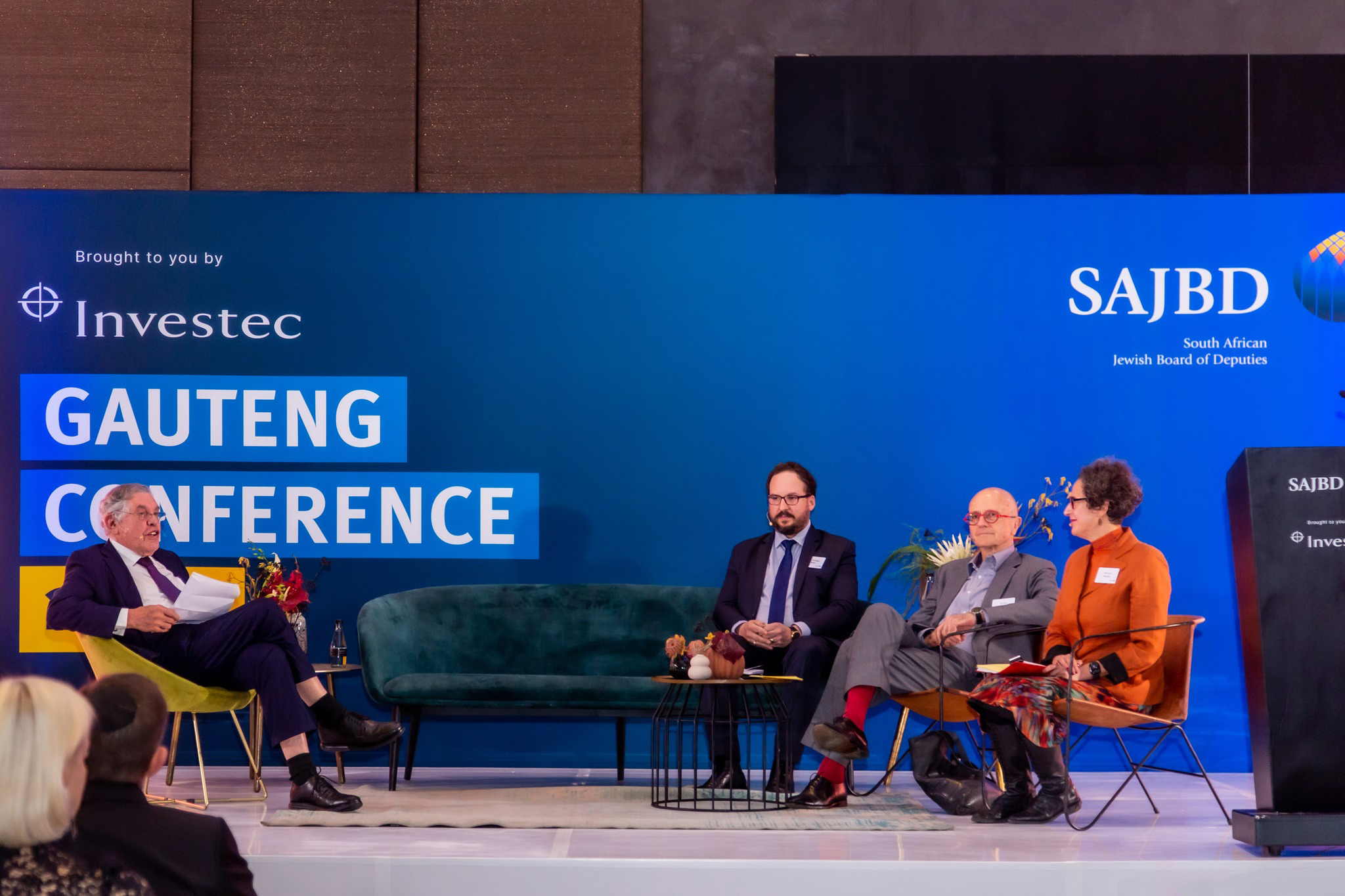click to dowload our latest edition
CLICK HERE TO SUBSCRIBE TO OUR NEWSLETTER


Published
1 year agoon
The team which won the 13-year case against Bongani Masuku had the challenge of proving that Masuku’s statements targeting the Jewish community were antisemitic although he never once used the word “Jew”, according to advocate Carol Steinberg.
Steinberg was speaking about the Constitutional Court judgment against Masuku on 16 February 2022, which upheld the findings of the Human Rights Commission and the Equality Court that Masuku was guilty of hate speech. She was speaking at the South African Jewish Board of Deputies’ (SAJBD) Gauteng Conference at the Sandton Convention Centre on 10 November.
SAJBD National Director Wendy Kahn said Masuku, then Congress of South African Trade Unions (Cosatu) international relations secretary, was ordered to apologise for offensive and inflammatory remarks he made against the South African Jewish community during Israel Apartheid Week in 2009 following violence on the Gaza border.
Antisemitism levels were increasing drastically in the country at the time, said Kahn.
Masuku, having previously refused to apologise, “finally did, in a letter and on the COSATU website”, said Kahn. “After 13 years, the SAJBD’s hate speech case against Masuku was successfully completed.”
Steinberg said that when she stood in the packed Constitutional Court during the Masuka case in 2019, “I realised for the first time that I wasn’t just a professional advocate doing my best for my clients. I was there for myself too. It was an extraordinary feeling. I had carefully prepared notes.”
Steinberg, during her counsel, said symbols such as a swastika represented antisemitic hate, and was used in one of the anti-Israel marches in South Africa.
“One of the judges interrupted me and said, ‘Mrs Steinberg, are you going to explain why the swastika is a symbol of hate? You just assumed it is,’” Steinberg recalled. “I stopped dead in my tracks because I realised I had assumed the judges would know about the history of European Jewry and the Holocaust. I was wrong.”
Steinberg said she threw away her prepared notes and spoke about the atrocities Jews had faced.
“The day the judgment was coming out, the email arrived, and I flipped to the end,” she said. “I saw that we had won. Then I quickly read through it. When I got to the last paragraph, and the last sentence of the judgment, I burst into tears. Written by the judge who asked me to explain the significance of the swastika, it read, ‘It was apt to end with some words from the Torah’, which it did. That’s not something we put into our argument. That’s something she had gone out and found.”
Advocate Wim Trengove, one of the SAJBD’s legal counsels, said the case exposed the fallacy of disguised speech. “The court held that although the defendant maligned Zionists, it clearly meant Jews. That, I think, was the most important point. Although I also made the point, the one who made it most forcefully was my co-counsel, Carol Steinberg, who spoke passionately.”
On what was ground-breaking about the judgment, Steinberg said, “Masuku declared, ‘I have no problem with Jews. Some of my best friends are Jews. My problem is with the state of Israel.’ He even pointed to where he said that from time to time.”
The main argument her team made was to claim that Masuku had used proxy words – one word to stand for another. “He was using what is a socially and legally acceptable word to cover for a meaning, pretending to be anti-Zionist when he was actually antisemitic. That’s what the Constitutional Court found.”
Steinberg said the court held that focusing on the plain text and ignoring the objectively ascertainable subtext would be ignorant, inappropriate, and antithetical to what the Constitution of South Africa demands. “Finding Mr Masuku guilty in some of his statements of hate speech turned on that paragraph. The court said, ‘You don’t invoke Hitler to talk about Israel. You invoke Hitler to talk about Jews.’”
Steinberg said she felt perplexed about why Masuku had referred to Jews being friends with Hitler. “Why? What’s the logic there?”
She cited the late Rabbi Lord Jonathan Sacks’s quote, “The ultimate weapon of the new antisemitism is dazzling in its simplicity. It goes like this. The Holocaust must never happen again. But Israelis are the new Nazis, the Palestinians are the new Jews, all Jews are Zionists. Therefore, the real antisemites of our time are none other than the Jews themselves.”
Steinberg said Masuku’s comment was encoded with this kind of thinking.
“Freedom of expression is really the cornerstone of any open democratic society, an extraordinarily important right,” Trengove said. “But there are two countervailing constitutional rights. The first applies to dignity, which entitles any person to be respected for the human beings we all are. The second is the prohibition of discrimination, which prohibits discrimination on a range of prohibited grounds – qualities that define people for what they are: race, sex, religion, ethnic origin, sexual orientation, and so on.”
Advocate Christiaan Bester, another of the SAJBD’s legal counsels in the Masuku case, said one of the most important remedies the Constitutional Court applied in the Masuku matter was that of an apology. “An apology, as the Constitutional Court acknowledged more than a decade earlier, is an important method in our country, in our constitutional dispensation, to bring about restorative justice.”
